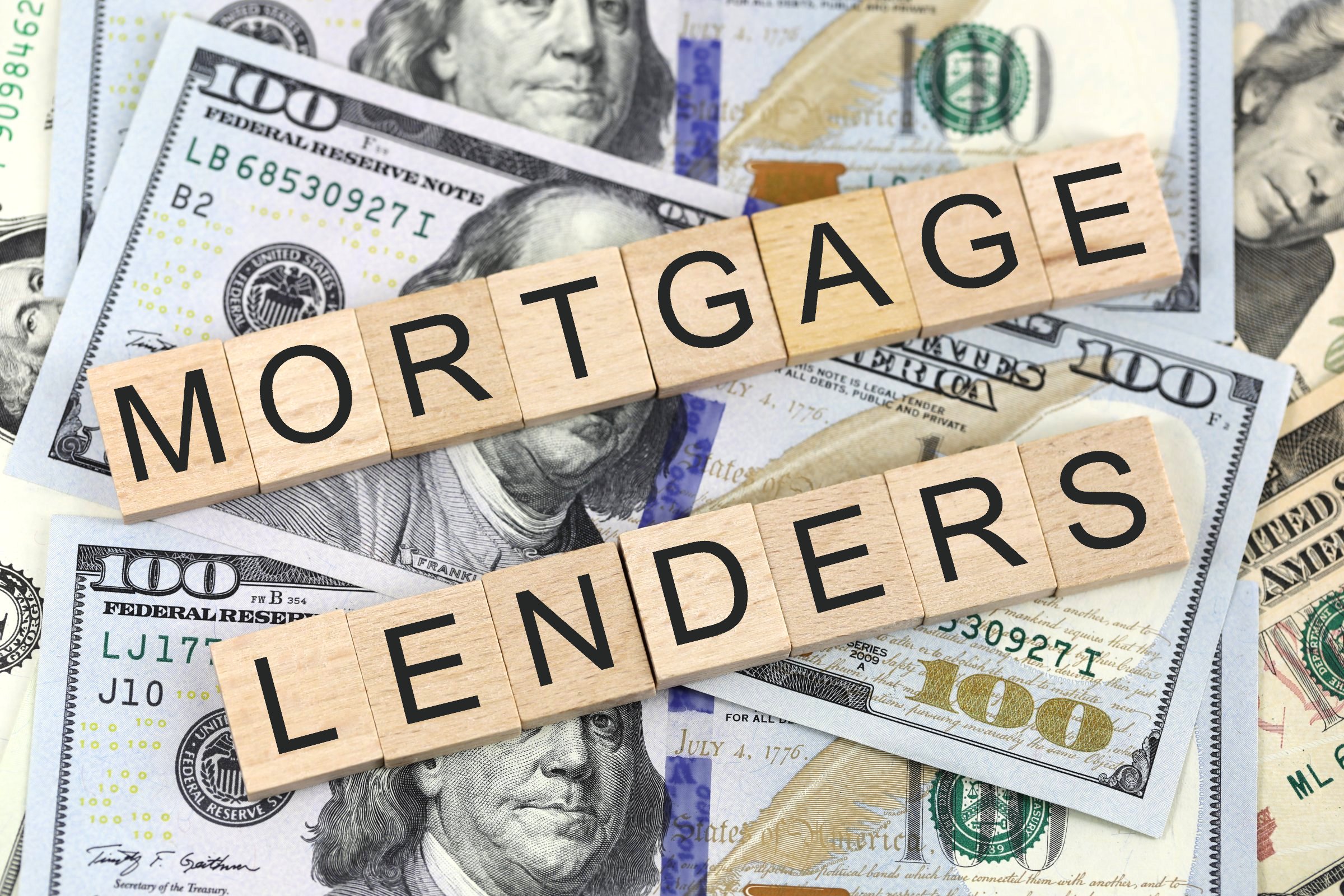Discovering Mortgage Lending: Necessary Details for Making Informed Decisions
In today's housing market, understanding mortgage lending is vital for possible customers. Various mortgage types, such as fixed-rate and adjustable-rate, offer distinct advantages and obstacles. Rates of interest, financing application processes, and closing expenses likewise play considerable functions in forming the home-buying experience. With numerous aspects to examine, traversing this landscape can seem intimidating. Yet, there are ways to streamline the process and make educated decisions.
Understanding Different Kinds of Mortgages
What are the different kinds of home loans readily available to property buyers? Buyers can select from numerous mortgage options to suit their monetary circumstances and goals. Fixed-rate mortgages are preferred for their stability, providing a consistent rates of interest and monthly settlement throughout the lending term. Alternatively, adjustable-rate home mortgages (ARMs) start with a lower rates of interest that may fluctuate after a preliminary period, potentially boosting overall costs. One more choice is the FHA car loan, created for low-to-moderate-income customers, which calls for a lower down repayment and has more lax credit report requirements. VA loans, readily available to professionals and energetic armed forces members, offer favorable terms without deposit and competitive rates. In addition, USDA fundings support rural buyers with low-to-moderate revenues, providing 100% funding in marked areas. Understanding these mortgage types allows property buyers to make enlightened choices based upon their unique financial situations.
The Significance of Rates Of Interest
Rates of interest play a critical role in the mortgage lending landscape, profoundly influencing the cost of homeownership. A lower rates of interest can significantly minimize monthly mortgage payments, making it easier for customers to manage their financial resources. On the other hand, greater rates can result in raised prices over the life of the lending, potentially pressing homeownership unreachable for several individuals.Additionally, rates of interest are frequently linked to wider financial indications, such as inflation and work prices, which can rise and fall based on market problems. This partnership suggests that potential homeowners have to stay informed concerning present price patterns to make educated decisions.Moreover, the type of mortgage picked can also impact how rate of interest are used, with fixed-rate mortgages supplying security and adjustable-rate mortgages presenting possible variability. Understanding these characteristics is necessary for customers looking to browse the complexities of mortgage lending properly.
The Mortgage Application Process
Guiding through the mortgage application procedure can appear intimidating for numerous possible homeowners. The trip generally starts with gathering essential documents, such as income declarations, income tax return, and credit scores background. Lenders evaluate this info to review the applicant's monetary stability and creditworthiness.Once the documentation is collected, people send a formal application, where they information personal and economic details. This phase is essential, as it allows lending institutions to determine finance qualification and terms. Following the submission, underwriting happens, throughout which lenders carry out a thorough review of the application and supporting documents.After underwriting, the lender might request added information or explanation. If approved, the candidate obtains a funding offer, which outlines the mortgage terms. Upon acceptance, shutting procedures start, leading to the finalization of the lending and the purchase of the property. Recognizing this procedure can empower potential property owners to browse it with greater self-confidence.
Key Terms Every Property Buyer Must Know
Maneuvering the world of mortgage lending requires familiarity with various crucial terms that can greatly affect the homebuying experience. Comprehending these terms aids purchasers navigate their alternatives and make educated decisions.One necessary term is "primary," which refers to the initial quantity obtained. Closely related is "passion," the charge charged by lending institutions for borrowing money, commonly revealed as an annual percentage price (APR) "Escrow" is one more significant principle, where funds are held by a third event to cover real estate tax and insurance.Buyers need to additionally be aware of "deposit," the ahead of time quantity paid towards the home purchase, and "equity," the distinction in between the home's market value and the remaining mortgage equilibrium. "pre-approval" represents that a lending institution has actually assessed a purchaser's economic scenario and identified exactly how much they can obtain, improving the acquiring process. Experience with these terms encourages homebuyers in their journey.
Tips for Improving Your Credit Scores Rating
Improving one's credit rating is important for safeguarding beneficial mortgage terms. Trick actions consist of paying expenses in a timely manner, minimizing credit score utilization, and inspecting credit records routinely - Private Mortgage Lenders Savannah GA. These actions can considerably improve an individual's economic account and raise their possibilities of acquiring a home loan

Pay Costs On Time
Paying bills on time stands as one of the most efficient approaches for improving a credit history. Timely payments show economic duty and reliability to lending institutions, significantly affecting credit assessments. Late payments can bring about adverse marks on credit score records, which may remain for several years, adversely affecting borrowing capacities. Developing a regular timetable for expense settlements can aid preserve preparation; using pointers or automatic settlements is an effective technique. Additionally, people must focus on important bills, such as charge card, energies, and mortgages, to protect their creditworthiness. Regularly checking credit report reports can likewise help catch any inconsistencies or missed repayments, enabling punctual activity. Ultimately, constant bill repayment is important for cultivating a strong credit rating account.
Reduce Credit Report Utilization
Lowering credit report utilization is a necessary step in boosting one's credit rating rating. Credit rating use refers to the ratio of charge card equilibriums to their restrictions, and it significantly influences credit rating. Professionals advise keeping an utilization rate below 30%, preferably around 10%. To attain this, people can pay down existing equilibriums or raise credit report restrictions, offered they do not raise spending. Furthermore, people ought to stay clear of closing old credit score accounts, as this can inadvertently increase application proportions by reducing total readily available debt. Consistently keeping track of costs habits and making constant payments can further assist in managing debt utilization successfully. By implementing these methods, people can enhance their credit rating and enhance their qualification for positive mortgage lending options.
Examine Debt Information Routinely
While many might neglect their credit rating records, on a regular basis inspecting these documents is crucial for preserving a healthy credit rating rating. Credit report reports contain vital information concerning an individual's credit rating, including settlement records, arrearages, and credit scores inquiries. By examining these reports, customers can identify any errors or deceitful activities, which can adversely affect their scores. It is suggested to inspect credit report reports at least every year, as this allows individuals to proper errors and take aggressive actions to improve their credit reliability. Furthermore, checking debt records can supply understanding into factors affecting ball game, making it possible for individuals to make informed monetary decisions. Eventually, constant alertness over credit scores reports promotes monetary health and wellness and improves the probability of protecting desirable mortgage lending terms.
Browsing Closing Prices and Costs
Recognizing closing prices and costs is essential for anyone entering click this link the mortgage procedure. Each part, from lending institution charges to third-party fees, can considerably influence the total expenditure of safeguarding a lending. By comparing these expenses and working out when feasible, consumers can better manage their economic dedications.
Understanding Closing Cost Components
Managing the complexities of closing expenses can be intimidating for buyers. Closing costs are included different parts, generally consisting of car loan source costs, appraisal costs, title insurance policy, and examination prices. These charges differ by lender and can change based on the building area and loan kind. Additionally, house try this site owners may experience prepaid prices like residential property taxes and home owners insurance coverage that are accumulated at closing (Private Mortgage Lenders Savannah GA). It is vital for customers to understand these parts to accurately estimate the complete amount required throughout the transaction. By damaging down each component, homebuyers can make enlightened financial decisions, guaranteeing they are well-prepared for the closing procedure and lessening any kind of shocks that might develop at the final phases of securing their mortgage
Contrasting Loan Provider Costs
When assessing mortgage alternatives, borrowers must thoroughly contrast lending institution fees to ensure they are making an educated decision. Loan provider costs can considerably impact the total price of a mortgage, consisting of application costs, car loan origination charges, and underwriting charges. Each lending institution may have various frameworks and quantities for these charges, which can bring about considerable differences in overall closing expenses. It is essential for customers to ask for a Car loan Estimate from multiple lenders, as this document describes all connected costs in a standardized style. By analyzing these price quotes, customers can recognize which lending institution supplies one of the most affordable terms. Ultimately, a comprehensive contrast of lender costs will certainly help customers pick the most effective mortgage option that lines up with their economic objectives.
Bargaining Closing Expenses
Customers usually overlook the potential to bargain closing expenses, which can better influence the price of a home loan. Closing expenses normally include different charges such as assessment, title insurance, and lawyer costs, which can add up substantially. Understanding these expenses is crucial, as they can differ in between lenders. By getting comprehensive price quotes, customers can recognize areas for settlement. It is advisable to go over fees directly with the loan provider, as some costs may be versatile. Additionally, debtors can contrast offers from several lenders to leverage better terms. Engaging an actual estate agent or a home loan broker can additionally boost the negotiation procedure, ensuring that debtors safeguard one of the most beneficial closing expenses and total mortgage terms.

Frequently Asked Concerns
What Papers Are Needed for a Home Mortgage Application?
The current concern addresses the needed documents for a mortgage application. Generally, candidates have to give recognition, income verification, credit history, possession declarations, and information concerning the property to ensure a thorough examination by lenders.
Exactly how Does My Employment Background Affect Mortgage Authorization?
Employment history considerably influences mortgage authorization, as lenders analyze job stability and earnings uniformity. A solid, continual work record improves creditworthiness, while constant job adjustments might elevate concerns concerning reliability and financial security.
Can I Obtain a Home Mortgage With Pupil Lendings?
The person's ability to protect a home mortgage with student finances depends on their total debt-to-income proportion and credit history. Lenders analyze these variables, determining whether the applicant can take care of extra financial responsibilities responsibly.
What Is the Difference In Between Pre-Qualification and Pre-Approval?
The difference in between pre-qualification and pre-approval lies in their deepness. Private Mortgage Lenders Savannah GA. Pre-qualification provides a basic estimate of obtaining possible based on self-reported info, while pre-approval involves a complete financial analysis and credit report check by the lender

Exactly how Long Does It Take to Close on a Home loan?
The moment required to shut on a mortgage commonly ranges click site from 30 to 45 days. Elements such as lending institution effectiveness, borrower documents completeness, and home appraisal can affect this timeline significantly, creating variations in the closing procedure.